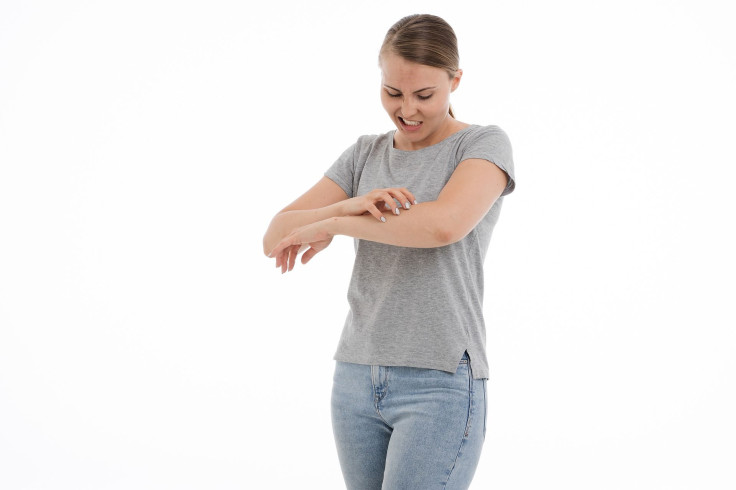Rubbing Or Stroking Skin More Effective Against Itching Than Scratching, Finds Study

KEY POINTS
- The itching sensation is believed to have evolved as a way to protect the skin from parasites
- The study demonstrated in mice that stroking the skin will be more effective in relieving the itch
- The researchers said stroking reduced the activity of itch-responsive spinal neurons
The first response of most people when their skin itches is to scratch it. Experts believe scratching is an act that sends low-level pain signals to the brain in order to temporarily distract it from the itch. Now, a new study has revealed rubbing or stroking the skin can be better than scratching an itch.
The itching sensation, technically called "pruritis", is believed to have evolved as a way to protect the skin from parasites as well as the build-up of dead cells. Being the first line of defense, the skin has evolved in several unique ways to stay intact.
Although it can be very difficult to resist scratching an itch, the action can damage the skin, especially the sensitive areas. Some itch-relieving chemicals such as serotonin could actually trigger the itch signal again.
The researchers demonstrated in mice that stroking the skin can be less-damaging to the skin and will be more effective in relieving the itch.
In their paper published in The Journal of Neuroscience, the researchers emphasized that stroking or rubbing the skin reduced the activity of itch-responsive spinal neurons.
As part of the study, experts from Dr. Phillip Frost Department of Dermatology & Cutaneous Surgery and Miami Itch Center, University of Miami Miller School of Medicine, triggered in mice the urge to scratch by applying an itch-inducing chemical beneath their skin.
The researchers then proceeded to record the electrical response from dorsal horn neurons that are located in the spinal cord of these animals while stroking their paws. Dorsal horns make up the central grey matter that is related to both touch and itch.
They found the neurons fired more when the mice were stroked and less after the stroking ended. The researchers said the increase in neurons fired in response to rubbing the skin corresponded to the added touch and not the increased itchiness.
The study offers a mechanistic understanding of touch-evoked itch relief. The results pointed out stroking the skin sets off a cascade, activating sensory neurons that are present under the skin, which in turn activates anti-itch interneurons in the spinal cord and this mechanism aids in itch relief.
© Copyright IBTimes 2025. All rights reserved.






















